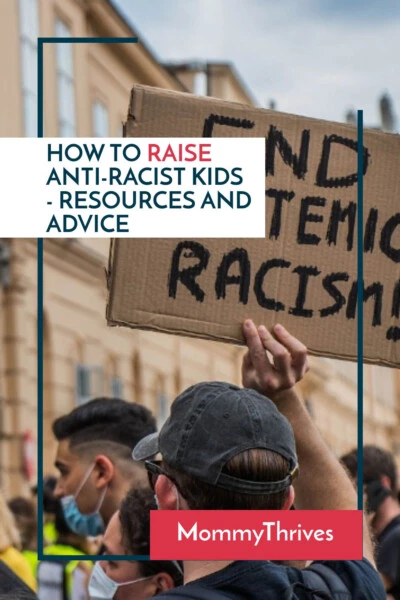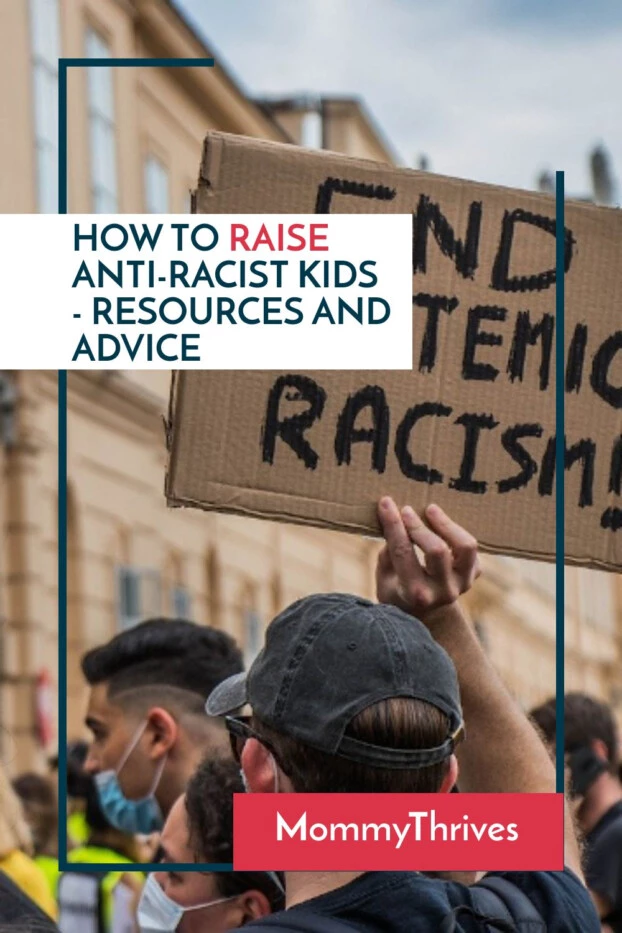As my family and I actively work to become anti-racist I realize the struggle that other white parents may be having. My son struggled with speech delay and still lacks important communication skills. I’ve struggled with teaching him about racism and how to be anti-racist.
The reality in our lives is we live in a predominantly white area of Pittsburgh, my son is not in school and will be homeschooled, and he is limited to the amount of people he knows in general.
I had hoped that this summer would be the beginning of us going and exploring our local parks, going to the local swimming pool, and attending events within the city. The virus that shall not be named ruined that.
My son is not as exposed to different races, people, and lifestyles as I would like him to be, and that’s a failure on my part.
This creates a special challenge in opening discussion and conversation with him about race, his privilege, racism, and anti-racism. Though I am a determined mother so this is not going to stop me from addressing these topics.
After we get a vaccine for the virus, and it’s safe to go out again, I will work extra hard to expose him to real life situations that will allow us to better illustrate to him the topic of racism.
For now, we have to rely on books, movies, tv shows, and my own explanations to raise an anti-racist child.
I’ve gone through and done a bit of research and I’m hoping that this will help you in your efforts to raise an anti-racist child as well.
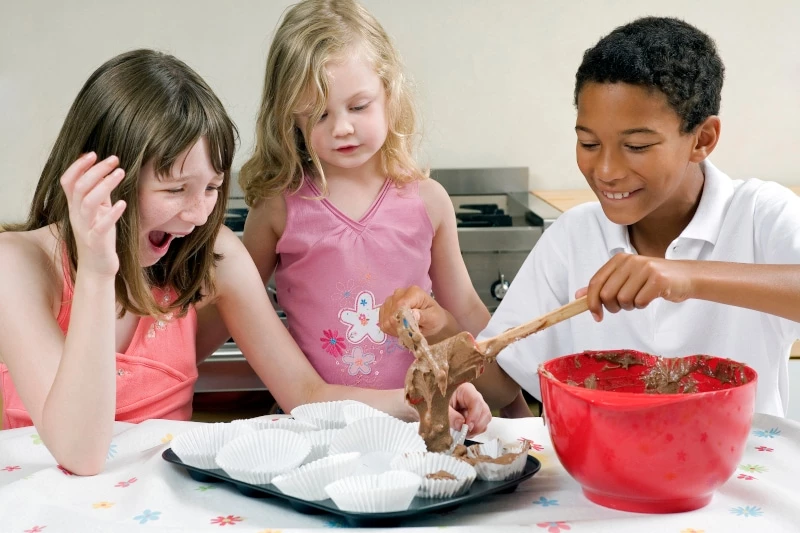
Explaining Race To Children
We’ve all seen the video of the white toddler and Black toddler running to hug each other. As feel good as it may be to say, “kids don’t see color” the truth is they do.
Babies and toddlers do recognize differences in skin, hair, eye color, and all the things that make each person unique. Recognizing our differences is important to the discussion of race.
Use Science To Explain Genetic Differences
There is always the scientific approach in DNA. Melanin is a skin pigment that occurs in humans and animals. Everyone has the same number of melanocytes which creates melanin, but some people make more melanin than others. How much melanin is produced depends on your genes.
This is the simplest way to explain differences in skin color across all races, it’s also the easiest for your kids to understand.
Being anti-racist doesn’t mean we don’t see color, it’s the process of understanding how different genes affect the body and then appreciating the uniqueness in each person.
It’s also recognizing that difference in treatment based on a combination of genes that are out of our control is actually ridiculous. The targeting of people whose genes allow for increased creation of melanin actually doesn’t make logical sense because genetics are out of our control.
Nobody can control what their genes do, I can’t control my blue eyes, I can’t change that my skin is sensitive to the sun and will burn easily.
To be targeted, attacked, hyper sexualized, mistreated, abused, and killed over something that is out of our control is wrong and dehumanizing. Full Stop.
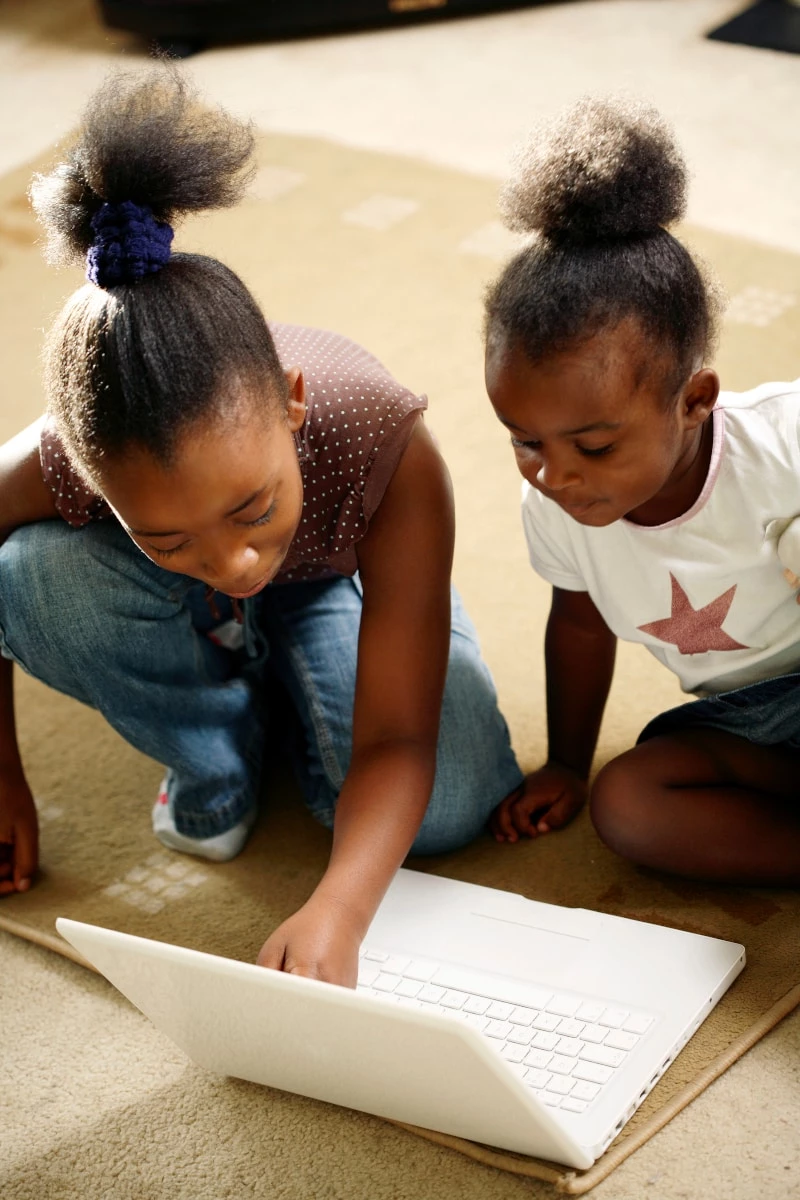
Explaining Speech Patterns By Understanding Different Dialects
I don’t know how many times I’ve heard an elder in my life refer to Black dialects as uneducated or “ghetto.” This small aggression, a microaggression that with or without intention was passed down.
As a young adult I learned that there are different dialects in Spanish based on which area someone is from. In America, in English, there are different dialects based on where someone is from. Even in just the south eastern and central area of our country you can tell a difference between someone from Louisiana vs. Texas vs. South Carolina vs. Georgia.
Dialect is nothing more than a small difference in the way we speak, uses of certain words, or phrases we use. It implies nothing on education levels. So this small aggression over dialect doesn’t make logical sense.
The future response to a child curious about Black dialect is to inform them that it is a dialect then show them the different dialects from different regions of the country.
The Effects Of Racism On Children
Racism has deep and damaging effects on all children. The effects on Black and brown children are far worse than the effects on white children due to privilege but even in white children you can see some of the effects of being raised in a racist environment.
The Effects of Racism on Black Children
Racism can lead to chronic stress in children which can cause actual changes in hormones. Racism is a trauma and as we study the effects of trauma on the brain we are finding out more about the effects of racism on BIPOC – Black, Indigenous, People Of Color.
Due to systematic racism alone – the lack of ability to build generational wealth, gentrification, etc and more on this later – children raised in Black, Hispanic, and American Indian populations are less likely to have access to fundamental needs. Good housing, food, health care, and education all have massive disparities that can have long term effects on the health and well being of a child.
Even minority children who are raised in a wealthier neighborhood are treated differently by teachers, face harsher punishments compared to their white counterparts, don’t receive special educational needs they may need, and are consistently underestimated instead of encouraged.
These disparities cause mental health struggles as well as physical problems in the child’s life. You can read more about the effects of racism on children of color in this article here and this one here.
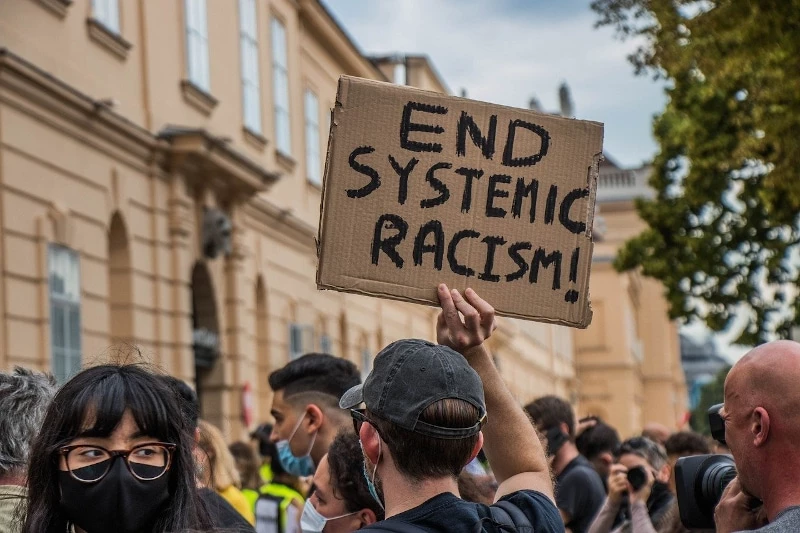
The Effects of Racism on White Children
I went looking for studies on the effects of racism in white children and to be honest, didn’t find any. This doesn’t mean there aren’t any out there it just means I couldn’t find them.
However, it doesn’t take a study to see the effects of racism in white children and what it mentally and physically can do to them. You can see the effects of racism in simple conversation with people raised in racists surroundings.
On the one hand you have a child who becomes anti-racist all on their own. Many times this child is exposed to consistent hate speech in their family, they are uncomfortable bringing people of color into the home, and they often will feel isolated from their family.
Losing that familial bond at a young age or even in their teenage years is a massive emotional struggle. Being taught that family is family and you must love your family while at the same time having huge disagreements in the treatment of humans is a huge mental struggle for any kid and even for adults.
On the flip side, racism in the home can cause kids to believe that they have more rights than others, instead of understanding what is simply their privilege. You’ve heard the common complaint of a white kid not getting into a certain college or getting a scholarship because a Black person took it.
Instead of hearing, sorry kid you’ll have to practice harder, they hear that they were somehow slighted or wronged by a Black person. In an actively anti-racist home it’s simply understanding that a kid didn’t meet the specifications while another kid did. The color had nothing to do with it.
You also see how racism can go a completely darker and heinous route when a young man walks into a Black church and kills 9 people. While the killer was convicted of 33 hate crime and murder charges at the federal level, and convicted of the nine murder charges at the state level, nine people were killed because of racism. This is just one example of a racist who murders black people, there are a lot of other examples.
In all three cases you have a child who either feels isolated from family and community, believing their privileges are actually rights when they aren’t, or possibly turning into a murderer. None of these are healthy and it’s why as parents we MUST take a stance to be actively anti-racist and teach our kids to be anti-racist.
Explaining Racism and White Privilege To Your Children
Privilege is a topic that is often harder to talk about. In my own life it wasn’t until Michael Brown’s death when I realised the color of my skin afforded me privileges that I didn’t know I had.
Over the years – and this is ongoing self improvement – I’ve had to face my own privilege and learn how I can use my privilege to help those who aren’t.
I’ve had to recognize that my privilege isn’t a right and realize that by standing up for the rights of others nothing actually changes in my own life. Making sure that Black lives are not taken by police brutality, that they are given the same considerations I am, and that systematic racism is destroyed, isn’t going to change my life in the slightest.
However, it will drastically change the lives of BIPOC for the better. Understanding privilege and how to use it for good is something that we need to help our kids also understand.
Under 6 Years Of Age
While we know that babies and toddlers can understand physical differences between races it’s a little harder to explain white privilege to children under the age of 6. However, there are still important conversations to have around racism even at this young age.
I found it’s best to start the conversation by reading or watching videos geared towards younger children and then opening up conversation to answer questions.
This video from Sesame Street and CNN helps to explain racism and the current protests. It’s a great video to help start the conversation in your home. Your kids can learn about the disparities at a level they can understand at this age.
6-12 Years Of Age
This is when outside influences can start to shape and change the way your child reacts to certain types of people and the world around them.
Enrolling your child in activities where they experience more diversity is important at this age. It helps to reinforce what you taught them at a young age and helps them to accept, respect, and celebrate the differences they see in people.
First, make sure your actions on how you treat others, the things you say, and how you embrace differences are seen. Our children still think highly of us at this point in their lives so your actions are something they will likely still emulate.
Unlike the way we were raised to “not see color,” we actually have to start seeing color, acknowledging that difference, being honest about their experiences, and then finding similarities that they can relate to.
Find real life examples that you can use to teach your child to stand up and use their privilege to help amplify the voices of disenfranchised groups. Explain why certain groups are often portrayed in stereotypical roles in movies and TV shows.
Take it one step further and explore movies, tv shows, and books, that put these groups into roles that are not stereotypical. This can help to reinforce in your child how wrong stereotypes are when it comes to race and racism.
Give praise when your child chooses the right behavior in showing empathy for others and treating them with kindness. Praise is one of the best ways to reinforce positive and healthy anti-racist behavior.
Finally, don’t be afraid to challenge your child when they learn something and repeat something that is hurtful towards BIPOC. Instead of saying, “don’t say that,” ask them where they heard it, why they said it, and ask them to explain how they would feel if it was said about them. Then explain why what they said or did is unacceptable.
12 and Beyond
Around the age of 12, parents are no longer the most important thing in a child’s life. However, if you’ve always nurtured conversation and involvement in their life your child may still look to you for guidance.
Keep those communication lines open by discussing current events, progress that’s being made, the realities of what’s going on versus what they may hear or see in the media. These types of conversations can keep your child on the path of anti-racism.
Encourage your child to read books or watch documentaries in learning the true history of our nation. Explain the horrible acts that took place and how we can stop those things from happening again by learning from our past.
Also, encourage activism in your child by encouraging them to voice their concerns. We see more and more of the next generation standing up for themselves in recent years and you can encourage your child to lead in that way too.
For more information on how you can prevent and respond to prejudice check out this pdf called Beyond The Golden Rule here.
Teaching Black History To Your Children
As an adult I’ve taken a special interest in history and learning, as a kid not so much. This doesn’t stop the fact that the history I received in public schools and then even through a homeschooling curriculum, did not cover Black history in depth.
The fact of the matter is you cannot talk about American history without also talking about Black history. Black history is the story of America and our children need to understand the painful and heinous crimes that have been committed against the Black community. It’s also important to recognize the scientific breakthroughs, inventions, and cultural contributions that Black people have given us but don’t get nearly enough credit for.
The reasoning for this is because without understanding Black history it’s harder to understand how systematic racism continues to hold back the Black community.
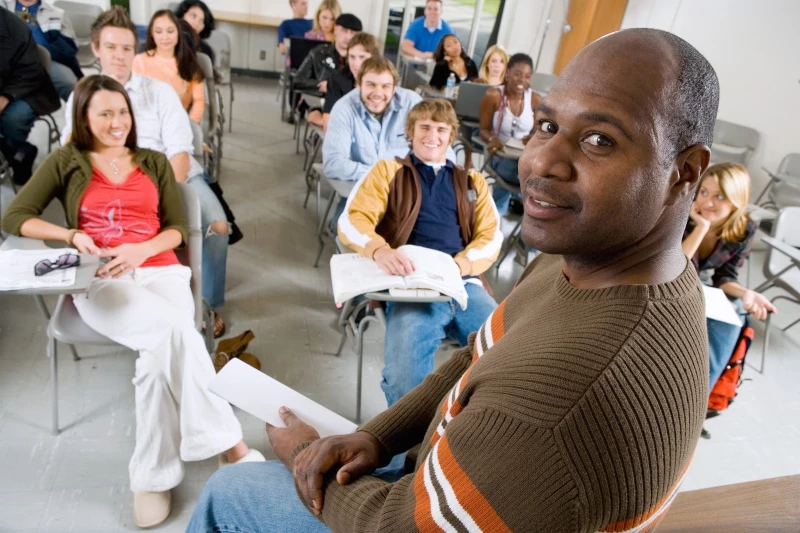
Your child needs to know about slavery, how it destroyed entire generations of Black babies, and the generational effects of slavery on the Black community. They also need to understand that slaves did not just suddenly have the same rights as white people when slavery was abolished.
They need to know about the Tulsa riots, the civil rights movement, what people actually thought about Martin Luther King Jr. in his time, and how even after the Civil Rights Act of 1964 took place the Black community continued to struggle due to systematic racist policy that was put into place.
Black history is the history of America and your child should know what happened. Education is key to stopping racism and building a country that is actively anti-racist.
Teaching Your Children About Systematic Racism
Stopping racism goes far beyond just stopping police brutality. Systematic racism is what has prevented the Black community from achieving generational wealth and it’s still in place today.
It all starts with how the Black community has been treated by cities and states for decades. I’m talking about gentrification and the destruction of Black communities. In the late 80s and early 90s many cities would come into largely Black communities to “improve” the area.
If you’re thinking they were shoveling money to help fix up houses or improve the schools and Black owned businesses in the area, you’re wrong. They would destroy businesses in hopes to build a mall, a stadium, a convention center, or more of the like.
The city meant “improve” for white people while gutting entire communities that were occupied by Black and brown people. The practice still happens today.
This would destroy the income and the prospect of building generational wealth within the community. The families would have to pack up and move to another area and start over again.
Due to the way property taxes work, schools in low income areas – where property taxes are lower – are underfunded. Kids in these communities have a harder time getting a good education that leads to college and a professional job market.
Since generations of Black families couldn’t afford college, most families ended up working lower wage jobs. This means there was a constant struggle financially.
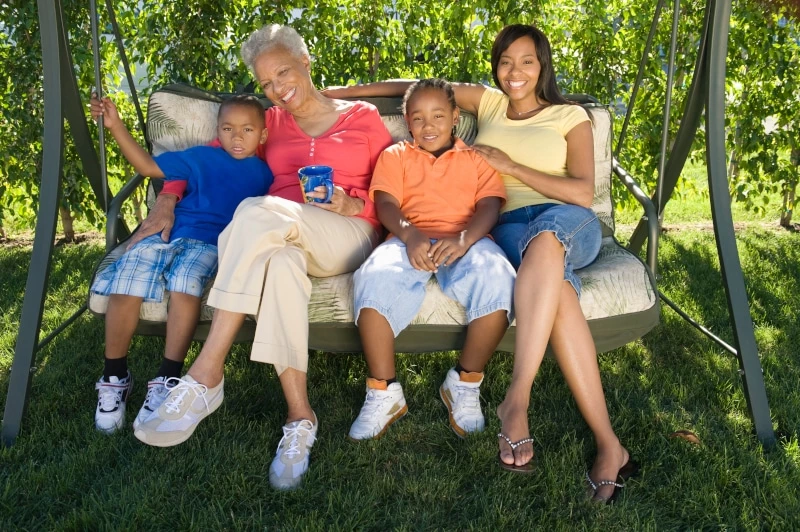
It meant less quality food, more stress, and possible packing up and moving every couple of years due to rent increases because of gentrification. Even when there has been actions taken to prevent this studies still show that employment and housing discrimination are a regular occurrence even today.
This is just part of the failures that are taking place in the current system. There are loads of examples of the ways the system is set up to benefit those who are wealthy and white while simultaneously harming Black and brown communities.
Teaching your child about how the system was built to disenfranchise black and brown people makes it easy for your child to understand what they are fighting for and why. A child who is well educated in how something is broken will be more empathetic toward communities of color.
How White Struggle Doesn’t Compare To Black Realities
The fact of the matter is there is an entire system in place to disenfranchise people of color and white people can get caught up in this system too. However, due to the color of our skin, it’s easier for us to “pull ourselves up by our bootstraps” and get out.
The system left Black and brown people with no boots to pull up and continues to pull their boots away from them. Think about the destruction of Black neighborhoods, businesses, and the racial bias they face every day.
So while for a period my family struggled, we were able to more quickly pull ourselves out of that because we have privilege. We more easily get considered for jobs, decent housing, and have access to generational wealth in our extended family that Black and brown people don’t have. This may also be true for your family.
Just because you’ve struggled and managed to come out of that doesn’t erase the real system failures that disproportionately affect the Black community. To be anti-racist, you must recognize that you are an exception, and they are living the rule. The rule is there is systematic racism that is geared towards harming the Black community.
Additional Resources To Help Your Family Become Anti-Racist
Below are some of the resources I found that can help you better teach your children to be anti-racist.
- Anti-Racism Resources For Parents And Kids – Healthline Parenthood
- Resources You’ll Need For Raising An Anti-Racist Child – Mashable
- Books For Kids and Teens About Race, Racism, and Police Violence – The Seattle Times
- 16 Anti-Racism Books For Young Children – Insider
This is all a great place to start to help teach your kids and start the conversations in your home in dealing with racism and stopping it. Giving your kids the confidence of knowledge on systematic racism can help them to also influence children around them to be anti-racist too.
It also helps your child to have the confidence to tackle the tough problems and demand better solutions from our government and leadership here in America.
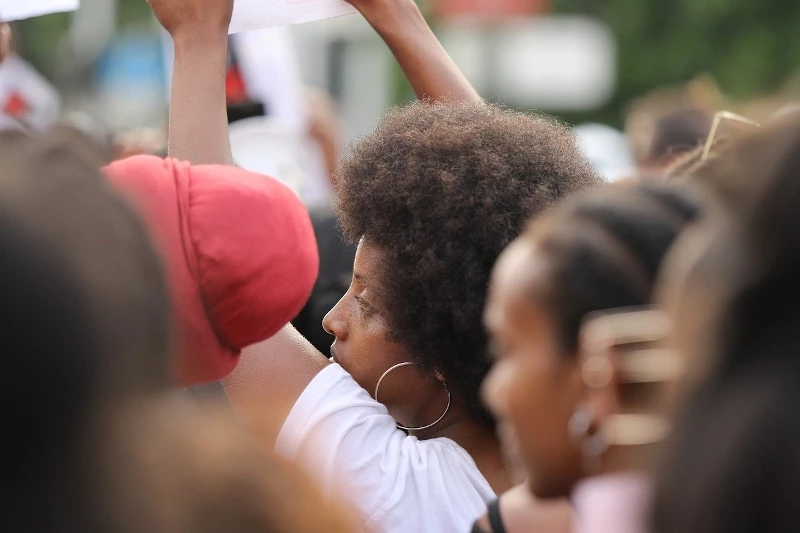
Resources For Parents To Be Anti-Racist
It’s not enough for you to teach your child to be anti-racist you must also become anti-racist to set the example. This means educating yourself on the issues that are tied to racism.
Below is a list of books that come highly recommended for white people to educate themselves. I have not read all of these books myself yet and want to encourage you to join me in this. Download the Libby App and you may be able to check these books out at your local library to download and read to your kindle or Fire Tablet.
- How To be An Anti-Racist – Ibram X. Kendi
- White Fragility Why It’s So Hard For White People To Talk About Racism – Robin Diangelo
- Me and White Supremacy Combat Racism, Change The World, And Become a Good Ancestor – Layla F Saad
- The New Jim Crow – Michelle Alexander
- Racism Without Racists Color-Blind Racism and the Persistence of Racial Inequality In America – Eduardo Bonilla-Silva
- How To be Less Stupid About Race – Crystal M. Fleming
- White Rage – Carol Anderson, Ph.D.
- Black Wealth / White Wealth – Melvin L. Oliver and Thomas M. Shapiro
There are also loads of great documentaries, movies, mini-series, and TV shows that are recommended for people who are wanting to learn to be anti-racist. Some of these lists repeat some of the same recommendations.
- 12 Movies To Watch To Educate Yourself About Racism and Protest History – Time
- 5 Of The Most Powerful Documentaries On Systematic Racism You Can Stream Right Now – Vogue
- 14 Of The Best Files and Documentaries To Educate Yourself On Racism and Black Oppression – Digital Spy
There is also The Anti-Racist Starter Pack: 40 TV Series, Documentaries, Movies, Ted Talks, and Books To Add To Your List.
Educating yourself will make it easier for you to explain and teach your children how to be anti-racist, to amplify black voices, and to effectively create the change we desperately need to end systematic racism.
Final Thoughts
While we absolutely believe that talking about racism and helping a child become anti-racist starts at home, we also know that there are community efforts that need to take place in order to maximize the effectiveness of what we are teaching.
I highly recommend looking at this article and taking the steps in your community to stop systematic racism.
I also recommend talking to people in your local school district to help come up with a way to help stop racist bullying that goes on in our schools. You should also encourage the district to seek out more Black teachers and counselors to help Black students in your schools feel safer and heard.

Representation matters and helps to nurture a child’s development. All children should be heard and cared for and the fact of the matter is Black children are not often being heard and cared for in our schools. So take a stance in your community to make sure that Black children are getting the education, the guidance, and the help they need from their schools.
A good friend of mine who is a teacher recommends also teaching white teachers anti-racist professional development, such as:
- For White Teachers Who Teach In The Hood – Dr. Chris Edmins
- The Framework of Understanding Poverty – Dr. Ruby Payne
Show up, demand change, support your local Black community by amplifying their voices. Learn, and commit to being a better ally each day.
Do you have any resources that you want to share? Let me know in the comments below. Follow me on Pinterest for more like this and pin this to your favorite parenting boards.
